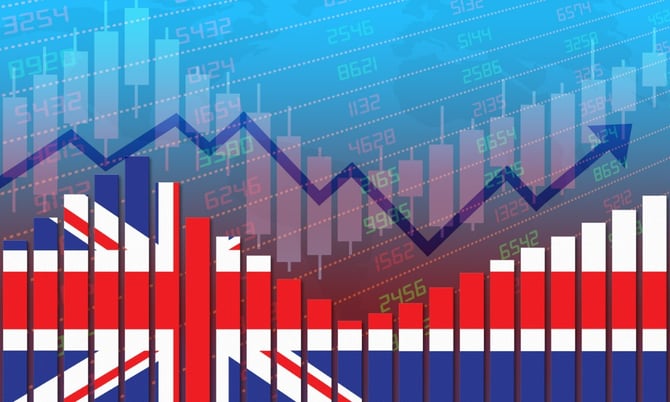UK Inflation Hits 30-Year High

British consumer price inflation leaped to its highest level in three decades, intensifying pressure on the Bank of England (BOE) to ease the cost-of-living squeeze.
The annual inflation rate climbed to 7% in March, from 6.2% in February, its highest since March 1992 and by more than expected by many analysts.
Consumers faced steep increases in the price of items, ranging from vehicle fuel to food and furniture. Unsurprisingly, Russia's invasion of Ukraine has played a key role in the high prices by pushing energy costs even higher.
Financial markets are all but certain that the BOE will raise interest rates to 1% from 0.75% on May 5, before taking them to 2% and above by the end of 2022.
There are signs of more trouble down the road as UK manufacturers increased their prices by 11.9% over the 12 months through March. At the same time, manufacturers' raw material costs jumped by 19.2%, the biggest increase since records were begun in 1997.
What does this mean for me?
If you have any investments in UK financial instruments, pay close attention to the important moving parts of the economy in the short term.
With the BOE set to raise interest rates, bond yields could increase accordingly. With high interest rates comes reduced consumer demand in capital-intensive markets, like real estate.
You can expect the stock prices of UK companies dealing in food, energy and furniture to report higher earnings in the next two quarters.
More News
.webp)
US Dollar Faces Biggest 6-Month Drop in Half a Century
.webp)
Dollar Slips to Three-Year Low as Trump Eyes Early Fed Appointment
.webp)
AI-Powered Trading Bots Bring a New Kind of Threat
.WEBP)
Euro Value Surges as Markets React to Tariff Shock

Euro’s Slide: What’s Behind the Drop and What’s Next?

Sterling Gains Against Euro as Central Banks Move Apart

Euro Remains Steady Amid Tariff Threats
